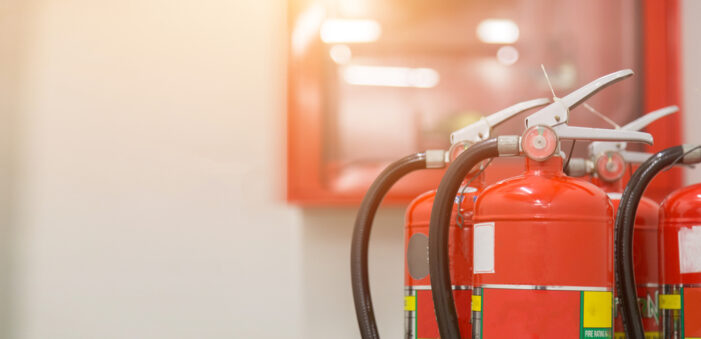For this week’s “Tuesday’s Tips,” the New York Department of State’s Division of Consumer Protection is providing New Yorkers with fire safety tips. October is Fire Prevention Month, which is a good time for New Yorkers to review and practice fire safety as the coming winter months are the peak time for fire-related incidents. The National Fire Protection Association (NFPA) reported 343,100 home structure fires in the United States in 2021. According to NFPA, the top five causes of home fires and casualties include cooking, heating equipment, electrical distribution and lighting equipment, intentional fire setting and smoking materials, with cooking remaining the leading cause from 2016 to 2020.
“As temperatures start to drop, households are turning on their home heating equipment, taking out portable heaters and cooking more meals at home in an effort to stay warm,” said New York State Secretary of State Robert J. Rodriguez. “I encourage all New Yorkers to exercise caution and use these simple fire safety tips provided by our Consumer Protection team to prevent future fire-related incidents.”
“As we enter the colder months when we typically see an increase in home fires, now is the time to implement some simple fire prevention steps to help ensure your safety and your families,” said State Fire Administrator James Cable. “Have your chimney cleaned, your home heating equipment inspected, keep all portable heating equipment away from flammable materials, and never leave cooking unattended.”
Cooking Safety Tips:
- Never leave cooking unattended. Always “stand by your pan” and avoid being distracted while cooking.
- Make sure you have a fire extinguisher nearby and know how to use it.
- Keep your smoke alarm connected while cooking.
- If you are simmering, baking or roasting food, check on it regularly and use a timer or your virtual assistant to remind you that you are cooking.
- Keep anything that can catch fire such as oven mitts, wooden utensils, towels, or food packaging away from your stove top.
- Once a child is able to, let them help in the kitchen. It’s a great way to learn about cooking safety. Make sure to have a “kid-free zone” of at least 3 feet around the stove.
Winter Home Heating & Fire Safety Tips:
- Only use fireplaces, wood stoves or other combustion heaters if they are properly vented to the outside and do not leak flue gas into the indoor air space. If planning to use a wood stove, fireplace or space heater, follow the manufacturer’s instructions. Do not burn paper in a fireplace.
- Ensure adequate ventilation if using a kerosene, propane or other fuel heater. Also, use only the specific type of fuel a heater is designed to use—don’t substitute with another source.
- Space heaters should be kept at least three feet away from beds, clothes, curtains and other flammable materials. Never cover a space heater or place on top of furniture or near water. Space heaters should not be left unattended when used near children. If a space heater has a damaged electrical cord or produces sparks, stop use immediately.
- Extension cords should not be overloaded or run where they can become a tripping hazard. Never run extension cords under carpets or rugs. Avoid using extension cords with a space heater.
- Prepare for emergencies. Keep a multipurpose, dry-chemical fire extinguisher near the area to be heated.
- If there is a power failure at home, use battery-powered flashlights or lanterns instead of candles, if possible. If you must use candles, use extreme caution. Never leave lit candles unattended, and do not burn them on or near anything that can catch fire. Extinguish candles when you leave the room and before sleeping.
Alarms:
- Have a smoke alarm on every level of your home, inside each sleeping room and outside each separate sleeping area. Interconnect the alarms so when one sounds, they all sound.
- Install smoke alarms and alert devices to help family members who are deaf or hard of hearing.
- Alert devices, such as strobe lights, flash when the smoke alarm sounds.
- Pillow or bed shakers may be useful to wake a person who is sleeping.
- Test your alarms at least once a month. Press each test button to make sure it is working.
Safety Plans:
- Plan and practice your home fire safety plan, including two exits from each room. Share the plan with all family members and guests.
- Have a plan specifically for children, older adults and people with disabilities. They may need more assistance than others in the household.
- Remove clutter to prevent trips and falls and allow for a quick escape.
- Make sure your home has bright lighting in stairways to prevent falls.
- Install handrails along the full length of both sides of the stairs.
- If there is a fire, get outside quickly and stay outside. Then call 9-1-1.
- If you can’t get outside, call 9-1-1 and let the fire department know. Wave a light-colored cloth or a flashlight from the window.
- Avoid smoke if you can. If you must escape through smoke, get low and go under the smoke.

